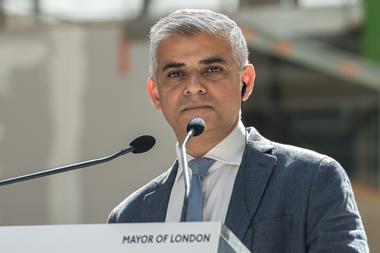Three weeks ago, I suspect the vast majority of property professionals drew a collective sigh of relief when the Conservatives were re-elected, and this time with a majority. Phew.

No rent controls, no mansion tax, no attacks on business, on occupiers, on investors, on us.
The market reaction was immediate, with shares in the property plcs leaping for joy, and agency firms forecasting even more significant growth pretty much everywhere, notably in London house prices, all of which could lead to many industry dons adding another zero to their pay packets.
Before we all pat each other on the back and fondly reminisce about how close we came to an epic fail, though, let’s remember some of the key messages from the opposition parties during the election campaign.
We are used to the perception of Labour ‘taking’ from the rich and ‘giving’ to the poor, but this time around many of the policies were aimed squarely at the property industry. Mansion taxes to subsidise the NHS; rent controls to provide more low-cost homes; a higher top rate of income tax and the abolition of non-dom status to address growing inequality are all now on the policy scrap heap, but the industry should not forget them.
Did we deserve such venom? Well, perhaps. A friend of mine explains it as the ‘Candy’ effect. Take a building held in an offshore vehicle, built by a wealthy private developer, with flats largely sold to foreign investors seeking a safe haven for their cash. The effect is amplified if those flats are in a prominent landmark London building, with floor-to-ceiling glass, so it is only too obvious to the outside world whether residents are home or not, and robust security ensuring that strangers do not get within a few feet of the structure. From the perspective of the five million people in the UK on minimum wage, the ‘haves’ are inside sipping champagne, while the ‘have-nots’ are locked out as the capital’s housing crisis reaches new heights.
Of course, this country has always had its fair share of wealthy people, it is just that they have not been on such public display before, be it in the shiny apartment buildings, the Daily Mail’s Sidebar of Shame or driving around in flashy sports cars — and when it comes to explaining this inequality, politicians have spied an easy target in the property developers.
So why should the 99% of our population who do not earn enough to pay the top rate of income tax care if some of the 1% do end up having to pay mansion taxes, or have their income tax increased? Can we blame them for assuming that all landlords must be loaded, and therefore capable of swallowing the cost of rent controls?
The problem is down to the property industry’s inability to get its message across properly. Back in the dark days of 2009, Gordon Brown subsidised the UK motor industry to the tune of more than £2bn, despite figures suggesting that 40p of each pound invested would leave the UK’s shores, as opposed to subsidising construction, which would have left 90p here. Back then, poor messaging led to a misdirected subsidy, and today it has resulted in an outright political attack.
Despite having some fantastic industry bodies in the British Council for Offices, the British Property Federation and the Investment Property Forum, we have not been able to convince people about the great things the property industry does. For starters, the number of jobs our industry creates in the UK through our construction activity, or the fact that our real estate has led 40% of the largest 200 companies in the world to have their HQs in London. That you can currently earn more than £50,000 a year as a bricklayer without the need to go to university and leave mired in debt, or how every one of our development schemes contributes to the socioeconomic and physical fabric of UK towns and cities through our Section 106 and Community Infrastructure Levy payments.
We need to tell the electorate how our industry, perhaps over all others, delivers a wonderful British-built product, a significant proportion of our GDP, and the homes, workplaces and leisure facilities enjoyed by all.
Maybe if we researched and reported our industry in this context then by the next election in May 2020, the opposition parties won’t be focusing on us as a problem, but instead on how we can be encouraged to deliver more growth, more jobs, more homes and a better Britain. It is time to do something.
Daniel Van Gelder is the co-founder of Exemplar, and chairman of the Westminster Property Association





























No comments yet